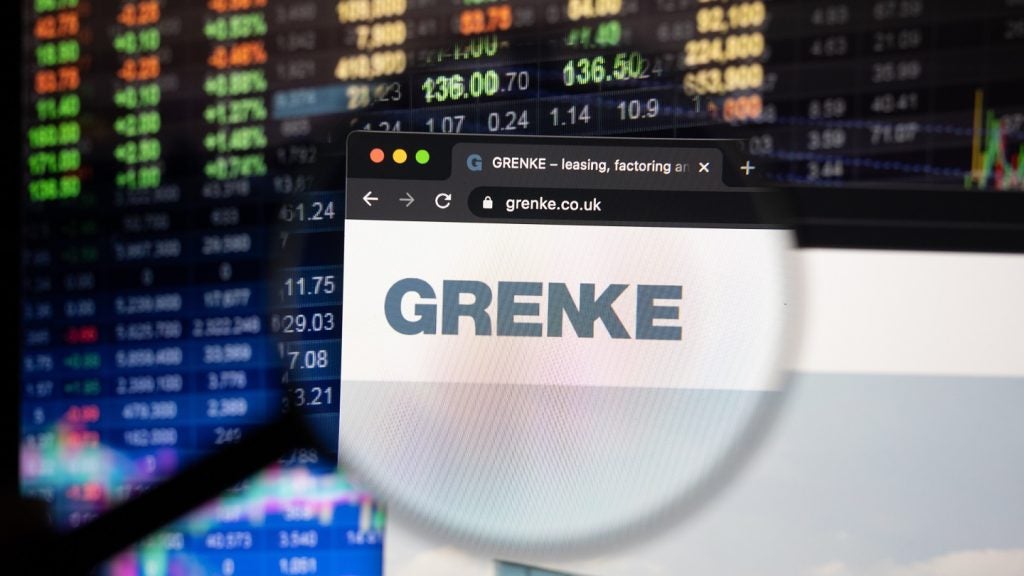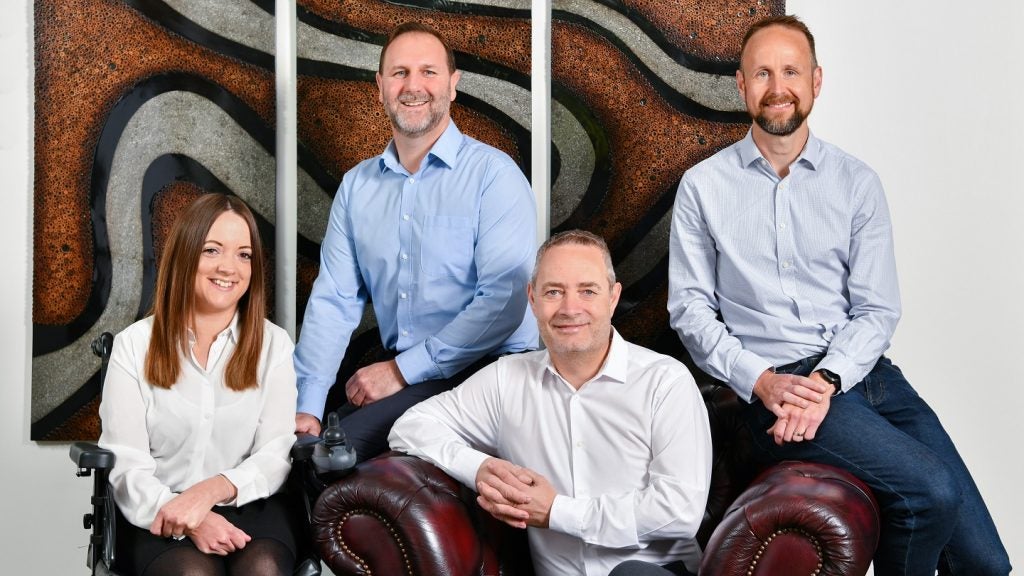
Newly-formed Econocom will
draw on a wealth of IT contacts and expertise, Liz Bury
writes.
Jean-Louis Bouchard, the
multimillionaire IT lessor, has four homes, he explains, by way of
illustrating a point he is making about flexible working.
Bouchard is speaking to Leasing
Life from his Saint-Tropez pad, were he counts among his
neighbours Angelina Jolie and Brad Pitt.
How well do you really know your competitors?
Access the most comprehensive Company Profiles on the market, powered by GlobalData. Save hours of research. Gain competitive edge.

Thank you!
Your download email will arrive shortly
Not ready to buy yet? Download a free sample
We are confident about the unique quality of our Company Profiles. However, we want you to make the most beneficial decision for your business, so we offer a free sample that you can download by submitting the below form
By GlobalDataWhen pushed, he furnishes further
details: “They are in town today. I saw them in the supermarket,”
he says.
The touch of playfulness hints at
Bouchard’s excitement about his new business venture, and the
energy that has made this serial entrepreneur such a success.
The 69 year-old chairman of
Econocom, who ranks 238 on Les Plus Grandes Fortunes (the French
equivalent of the Forbes Rich List, published by French magazine
Challenges) saw his estimated personal fortune jump 88.9% to €136m
in 2010.
To launch his new IT leasing and
services empire, formed by Econocom’s takeover last year of ECS, he
invited 250 top managers from across the group in Europe for lunch
at the Pavilion Gabriel in Paris.
Understandably, Bouchard wanted to
celebrate: the takeover deal represents the culmination of a life
devoted to building a market-leading IT finance house and services
specialist.
The party may also turn out to have
been a sound investment, since the goodwill generated at the
morale-boosting event may need to be drawn upon in the months
ahead, as the challenges of integrating the two businesses
unfold.
Econocom – the name will now be
applied to the whole entity bar the services business which keeps
the ECS moniker – will now undertake a huge integration
project.
For Bouchard, the merger is like
reuniting with an old friend.
“I am Econocom, but also ECS,” he
says.
Small
beginnings
 Bouchard began in the IT business at IBM in the late
Bouchard began in the IT business at IBM in the late
1960s, and left to start an IT training business. On seeking to
reduce his company’s IT overhead, he tested out the PC resale
market, and found the trade to be very profitable. His
entrepreneurial streak kicked in.
“This was good business and grew
more rapidly than the training business, which I kept for 10
years,” he says.
“In the beginning I was just
selling second-hand computers. One customer, a supermarket, bought
seven, but it wanted to rent them. I was introduced to the backer
and we came up with a lease contract because the customer was
asking for it. I was always listening to what the customer wanted
and asking, ‘what do you need?’”.
In 1974, Bouchard set up ECS
“during the early stages of the leasing business for the IT
industry”. It developed rapidly during the late 1970s and, on the
election of left-leaning François Mitterrand as France’s President
in 1981, Bouchard decided to focus his efforts on expansion outside
France.
ECS International was established,
bringing together similar companies from across Europe. By 1982, it
had offices in Belgium, Germany, Spain, Switzerland and the UK.
He sold a majority stake in ECS
France to Société Générale (SG) three years later in 1984.
“We needed a lot of funding,”
Bouchard says.
When plans to take the company
public were scrapped, Bouchard exercised a put option and sold the
remainder of the French share capital to SG, exiting the business
completely. He still owned the operation outside France, renaming
it Econocom.
Around 1986, ECS also began to
expand outside of France.
“Two groups with the same DNA were
then competing,” Bouchard says.
Terms of the
deal
Bouchard’s experience of dealing
with SG will likely have come in useful during last year’s
negotiations. Econocom and SG signed a share purchase agreement on
10 September 2010.
Of the total acquisition price of
€210m (including the 2009 dividend due to the seller), €30m was
financed through an Econocom share issue underwritten by SG, which
owns 9% of the company’s share capital. Other financing was
provided by a banking pool headed by BNP Paribas Fortis and
ING.
Integration
project
The entity created by the merger
has estimated annual revenue of €1.6bn, of which €250m is from IT
and telecom services, and net profit approaching €50m.
It is being positioned as a
provider of finance and services across the entire IT asset
universe, from access (mobile devices and desktops), through
connectivity (routers and network security systems), to production
and storage assets (servers and storage units).
The new structure has strong bases
in seven western European markets, and is expanding in Eastern
Europe, China, Morocco, and the US.
Across Europe, it claims to have
14,000 clients and 4,000 employees. Integrating the two businesses
is expected to take most of this year to complete.
Bouchard says: “I really did not
know ECS or the people, since I left 25 years ago. I am happily
surprised by the quality of the people. In many instances, ECS is
the best. It had a lot of investment into systems and
organisation.
“Econocom, not being the subsidiary
of a bank, is more reactive and full of life, fresh air.”
A series of 20 strategic workshops
were held at the end of 2010 to help in deciding which offices to
keep and which to shut.
“Each time, we picked the best,”
Bouchard says.
In situations where one office was
clearly the larger, the choice of which to shut was obvious. In the
UK, for example, Econocom had a single employee who has now
transferred to what was his rival’s office.
However in markets like Belgium,
France, Italy and Spain, where both companies have a large
operation, the integration challenge is bigger, with some
redundancies expected. IT and management are likely to be hit,
although Bouchard hopes much of the required headcount reduction
can be achieved through a hiring freeze.
Several managers have been
disappointed not to get the job title or promotion they had
expected.
“Although the company is doubling
in size, and individuals may be managing twice as many people, they
may not be promoted,” Bouchard says.
One of the big projects will be to
integrate internal IT systems, putting the entire business on the
same platforms, one for leasing, and one for maintenance
services.
While the realities of the
integration are at the front of Bouchard’s mind, his thoughts are
already jumping ahead to what happens next.
“This is not a challenge that will
be won within a year. By the end of 2011, it will be a brand new
company needing to conquer new horizons,” he says.
Future vision
Staying ahead of the curve in
understanding the ever-shifting IT market is Bouchard’s particular
expertise.
“In the next five to 10 years, it
will be a challenge to deliver and lease all types of ICT,” he
says.
“People are working anytime,
anywhere. Leasing is rapidly evolving. In the past, we had
computers, now we have intelligent objects – computers in cars, in
printers, in school classrooms.”
Such intelligent objects are
appearing everywhere, and represent a huge opportunity to
Bouchard.
One example has seen him step in to
finance the shift from old fashioned film projectors to new digital
ones.
“Films used to be shipped over from
Hollywood; now, it’s data that is sent,” he says. “It is easier to
send data than film, and the cinema gets a rebate for using the new
technology. There are thousands of cinemas throughout Europe that
need to be equipped.”
The company has signed two large
deals worth €37m in the past two years, financing 600 projectors
and servers for cinemas in Belgium, France, Spain and
Switzerland.
Bedside terminals in hospitals are
also singled out as a significant opportunity since the numbers
involved may be very high.
“They enable each patient to be
able to communicate with the outside world,” Bouchard says.
Digital print technology is a
third, big target market. A single deal signed last year for
digital printers was worth €72m to Econocom.
The focus on funding intelligent
objects is a big part of the company’s future. However, Bouchard
never loses sight of the past, and believes that the customer
service mentality remains his company’s biggest strength.
“Customers want combined services.
Managing distributed IT, especially when it’s connected through a
telephone line, gives managers a headache. Managed services leasing
makes it easy for them.”
The rapidly changing IT
marketplace, which now features pay-per-use services, and is
characterised by “anytime, anywhere working”, will need flexible
financing solutions, including leasing.
Bouchard concludes: “Within this industry, there are a lot of
things to achieve in years to come.”
See also: Econocom unveils
new group structure







